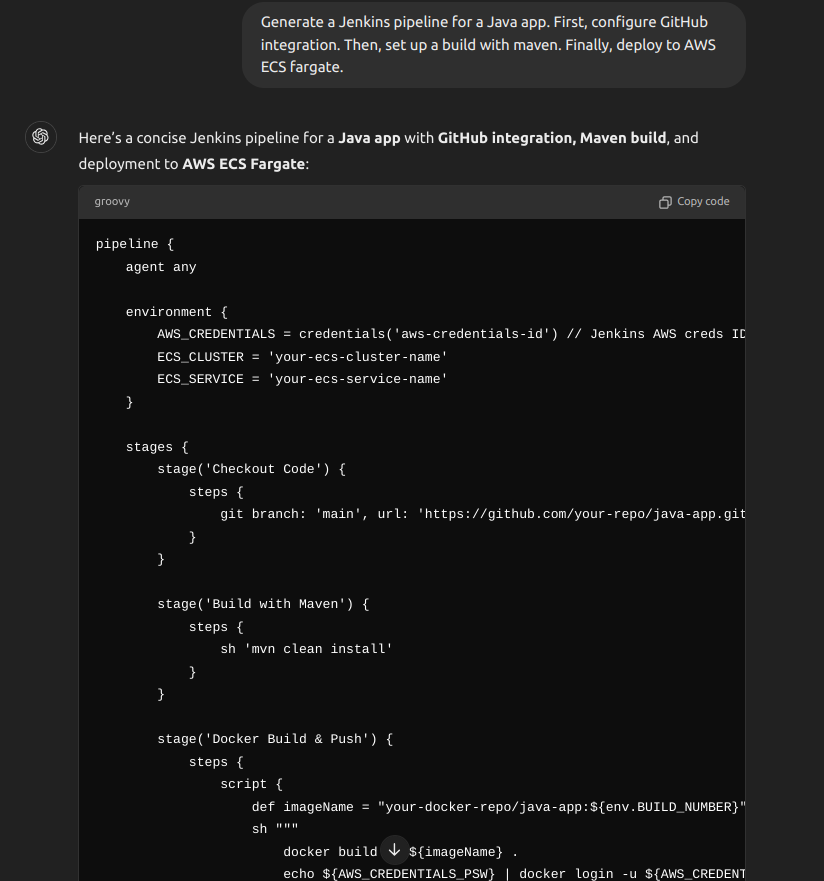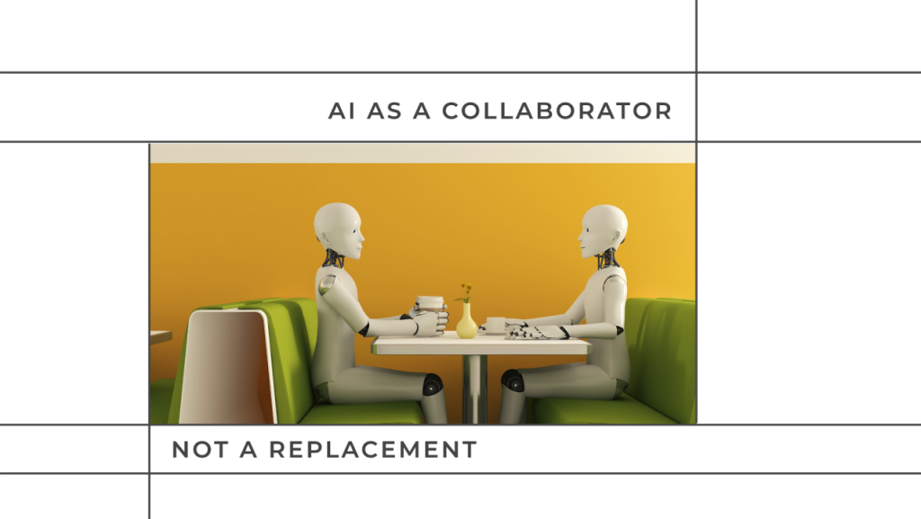Boosting AWS DevOps Performance with AI-Driven Automation and Prompt Engineering
Artificial intelligence has recently significantly altered various sectors, and AWS DevOps is among those affected. The increasing utilization of AI tools like ChatGPT has made prompt engineering a vital competency for professionals in the AWS DevOps field. By integrating AI into AWS DevOps practices, teams can automate tasks, optimize workflows, and enhance efficiency in deployment and infrastructure management.

What Is Prompt Engineering in AWS DevOps?
Prompt engineering refers to developing, designing, and optimizing prompts to enhance the output of foundational models for your needs. The prompt gives little guidance and leaves a lot to the model’s interpretation. The structure of the prompt frequently influences the quality of AI-generated responses. In the context of AWS DevOps, prompt engineering can automate numerous tasks, assist in troubleshooting efforts, generate automation scripts, and deliver immediate documentation, all achieved through carefully crafted input prompts.
Why Should AWS DevOps Engineers Care About Prompt Engineering?
In the realm of DevOps, time is invaluable. Through the application of prompt engineering, one can:
On-Demand Code Generation:
Automate the creation of documentation and code. Instantly generate scripts (consider tools such as Terraform, Ansible, Python, or Jenkinsfiles).
Faster Troubleshooting:
Quickly compose alerts or responses to incidents.
Automation of Repetitive Tasks:
Minimize repetitive work by offloading them to AI.
Enhanced Decision-Making:
AI can recommend scaling infrastructure, improving deployment strategies, or optimizing resource usage based on detailed prompts.
Prompt engineering is a powerful technique for enhancing the efficiency of your DevOps processes.
Key Prompt Engineering Techniques for AWS DevOps
This section examines techniques where prompt engineering can be incorporated into AWS DevOps workflows to yield significant advantages, enhancing automation, efficiency, and overall pipeline performance.
Zero-Shot Prompting:
Model answers without any prior examples.
Write a Terraform code to create an EC2 Instance.Few-Shot Prompting:
Provide a few examples to help the model understand the task.
Here are two alerts: . Now write an alert for CPU over 90% usage.Chain of Thought Prompting:
Guide the model through a multi-step task.
First, explain Jenkins pipelines. Next, generate a Docker-based pipeline. Then show how to deploy it to AWS.System Prompts:
Set the model’s behavior (e.g., instruct it to behave like a DevOps bot).
Act as a DevOps Engineer. Generate Ansible playbooks for Apache server setup.AWS DevOps Prompt Engineering Techniques in Action (With Examples)
Zero-Shot Prompting (Quick Terraform Configuration):
No need to search Google! Just ask the AI to generate a Terraform configuration.
Few-Shot Prompting: Incident Alert

Chain of Thought Prompting: CI/CD Setup Example.

Best Practices for Prompt Engineering in AWS DevOps
Be Precise:
Random prompts may lead to incomplete or wrong responses. For instance, when working with AWS DevOps, it’s essential to specify the type of infrastructure, cloud service, or programming language required to ensure accurate and relevant AI-generated solutions.
Provide Context:
Start giving context to your prompts, such as the environment (e.g., AWS, Azure, GCP), version details, or particular configurations, to enable the AI to customize its response effectively.
Iterate and Improve:
Achieving the ideal answer may not occur on the initial attempt. Experiment with various prompt formats and adjust them based on the feedback received to enhance the quality of the output.
Utilize Code Examples:
If the AI has access to the context from an existing codebase or configuration file, it can generate more precise responses. Include relevant code snippets in the prompt to direct the AI’s focus.
Treat AI as a Collaborator, Not a Substitute:
While AI-generated recommendations can be beneficial in AWS DevOps environments, it is essential to review and validate them to ensure they align with best practices and operational requirements.

Future of AWS DevOps with Prompt Engineering
The integration of AI-powered prompt engineering with AWS DevOps tools is just beginning. The future may look like this: seamless automation, smarter workflows, and faster, more reliable deployments in the AWS cloud environment.
Automated Releases & Deployments:
Deployments that are automated through natural language directives.
Systems That Possess Self-Healing Capabilities:
Identifying and rectifying problems independently.
Intelligent Chatbots:
Functioning as DevOps aides, managing daily routine responsibilities.

Proactive Monitoring:
AI-enhanced systems can foresee and address incidents before their effect on users, thereby minimizing downtime.
Natural Language Queries:
Teams can inquire about infrastructure performance or deployment statuses using straightforward text commands.

AI-Assisted Learning:
DevOps teams gain contextual insights and educational resources tailored to their specific environment and challenges.
Conclusion: Make Prompt Engineering Your New AWS DevOps Skill
The field of prompt engineering represents a significant advancement for DevOps engineers. It is not only engaging and practical but also has the potential to reduce hours spent on manual tasks. By mastering the skill of crafting precise prompts, you can enhance your efficiency and explore new opportunities, whether it involves generating Terraform configurations or automating incident notifications. As showcased at Automation Anywhere Imagine 2024, the integration of intelligent automation into DevOps workflows can revolutionize the way tasks are approached and completed.
At Cloudastra Technologies, we assist teams in managing their AI-driven projects effortlessly. Our team of AWS AI-certified DevOps engineers guarantees the smooth integration of AI with DevOps methodologies, leading to more intelligent automation and expedited deployment processes.
So, give it a try! What will your next prompt be?
We invite you to express your opinions: What is the most impressive DevOps task you have successfully automated using AI? Consider creating your upcoming Jenkinsfile or Terraform configuration by utilizing a prompt and witnessing the remarkable results!
Do you like to read more educational content? Read our blogs at Cloudastra Technologies or contact us for business enquiry at Cloudastra Contact Us.